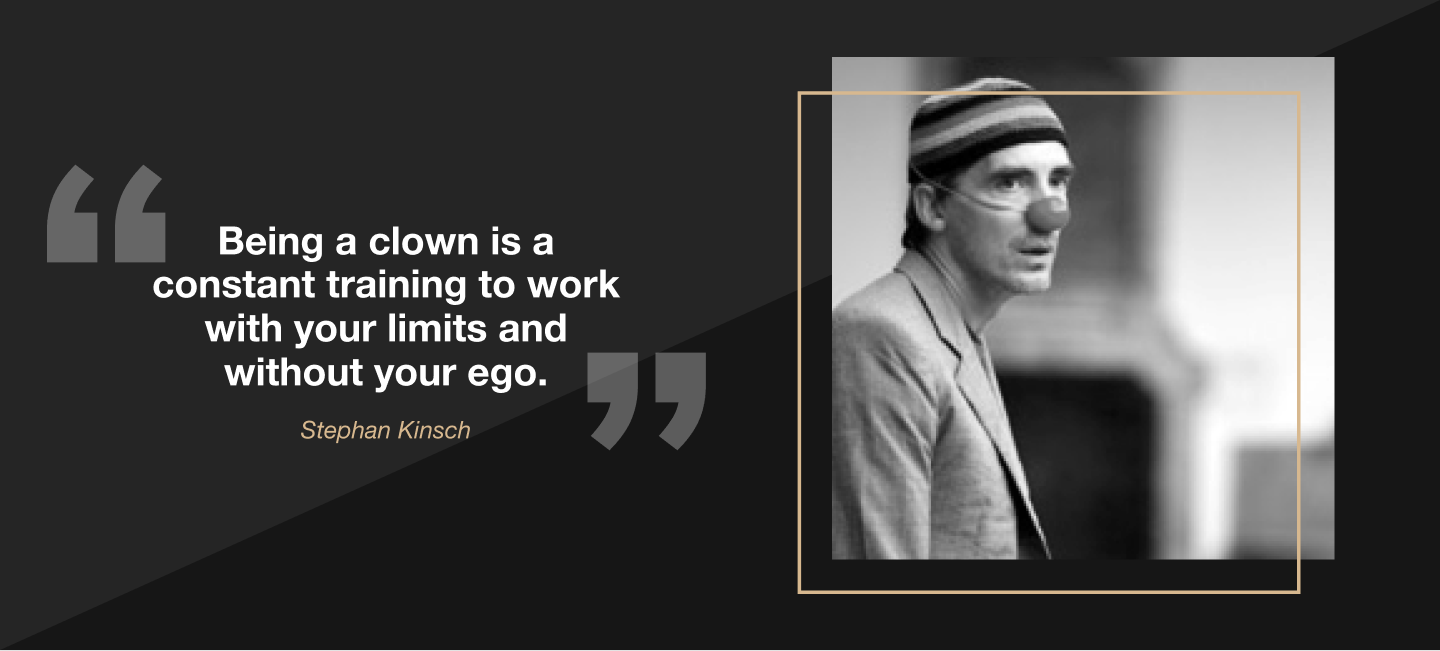Episode 006
April 9, 2019
006 – What managers can learn from the clown – with Steph Kinsch

Sign up to download the free 1-page summary.
Intro
In this episode, I talk to Stephan Kinsch, a trained chartered accountant who turned into a TEDx speaker, successful executive coach, opened the circus Zaltimbanq and runs a clown school. Others say about Steph that “he doesn’t take himself seriously but does things very seriously.”
We talk about similarities between the circus and meetings and what circus directors can teach managers and facilitators about structuring effective working sessions. This interview may change the way you thought about breaks and teach you how to better leverage their value. Steph guides us through several exercises that help participants connect and open up.
Don’t miss the part when Steph shares what he learned in a business meeting that he now applies in his clown workshops (and I witnessed the effectiveness myself). The clown will surely inspire you to think of meetings differently and help you design workshops that work.
Don’t miss the next show: sign up to my newsletter and subscribe to the show through your podcast player.
Feeling inspired by the conversation in this episode? We can have our own – take a seat at my virtual table as part of a Mastermind Group.
A huge thank you must go to SessionLab, the sponsor of Workshops Work. Claim your free two months of SessionLab Pro now – this deal is exclusive to Workshops Work listeners!
Questions and Answers
2:52 As a management consultant, how often do you switch into the role of the clown?
2:59 What is a clown?
4:02 What came first in your career: the consultant of the clown?
5:37 After your accidental attendance of a clown workshop, what led you do this professionally?
6:30 What can we learn from you on how to allow emotions?
8:23 How can you create moments of laughter without making a fool of yourself?
11:30 Would you structure a workshop similar to a circus performance?
12:43 What are the clown’s strategies to release tension or conflict in meetings?
14:40 Are there situations in which the clown must stay out of the room?
16:23 You have worked as a manager and facilitator in very serious environments already, from your perspective, what makes workshops fail?
18:41 How do you give structure?
20:55 How did you learn to deal with uncertainty?
25:18 How do you share the responsibility of achieving the workshop’s gaols?
30:22 As a facilitator, what is the exercise you do that always works? What is your silver bullet?
31:39 Would you use this exercise to get the group’s attention back or as a warm-up to start with?
32:41 Are you doing a “check-in” to your workshops? And if so, how?
38:54 What’s your experience when you suddenly leave the room without verbally announcing the break?
40:43 If the listener just woke up, what shall they take away from this episode? What did they miss?
Links
Stephan Kinsch’s business page: https://www.bebop.lu/
Steph’s circus school: https://www.zaltimbanq.lu/ and Facebook Page
His TEDx talk
My blog post after joining Steph’s Clown workshop
Our sponsor Session Lab
